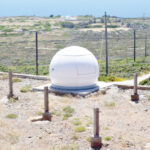In this piece, I indulge my love for philosophy by dabbling in the thoughts of stoicism as a theoretical frame for coming to grips with the national project in Nigeria. The Nigeria Project is the task of nation building to transpose the myriad ethnic loyalties of the Nigerian state into a civic loyalty around which Nigeria’s nationhood can emerge as a unified entity. Since independence, and due to the amalgamation effect, Nigeria has concentrated effort more on state building that secures the national border of the Nigerian state and as an entity, than its internal unity. The effect has remained the deeply divisive nature of the Nigerian state.
As the popular motivational nugget puts it, “there is no gain without pain.” This maxim speaks immediately to the lexical understanding of stoicism, or being stoical in the face of adversity. Now, before I am misunderstood, a clarification. The stoic message is targeted at both the leadership and the followership in the Nigerian political and governance space, as we approach post-2023. Stoic philosophy, founded by Zeno of Citium in Athens, combined three philosophical elements—ethics, logic and natural philosophy—to demonstrate how the practice of virtues can serve as the basis for initiating human flourishing. To achieve a good life, for the stoic, is to live in accordance with the dynamics of nature, according to Epictetus in his Enchiridion. Within this, we can identify three critical beliefs of the stoics: one, virtues—wisdom, courage, moderation and justice—are all that are required to achieve happiness; two, to live a good life means being indifferent to any other external goods, like wealth or pleasure; and three, nature is providentially ordered.
The stoic philosophy provides rich psychological insights for building human resilience against calamities. Resilience therefore derives not from events happening to us, but from human interpretations of those events. With the stoic understanding, we can immediately key into the courageous capacity of Nigerians to keep wading through the enormity of underdevelopment while carrying on the herculean task of eking out a living that has become most difficult over time. In 2018, Nigeria ranked the fifth happiest country in Africa. In 2022, twenty African countries ranked higher than Nigeria. This tells a story: Nigerians’ capacity to withstand hardship is failing. This implies that we need to look for the element of that resilient governance philosophy elsewhere, rather than in the suffering capacity of the people.
And that “elsewhere” lies within the capability of Nigeria’s governance institutions and processes to plan for, absorb, recover from and adapt to adverse predicament and circumstances. And therefore, the critical questions: What is incumbent on the incoming administration to do to build resilience and governance success? Let me outline a few of these strate queries. How might the incoming administration facilitate the emergence of a policy-engaged action and future research that mobilise scenario planning as the basis for a strategic policy intelligence to present a clear picture of what constitutes the best or worse case scenarios? Or would it just be business as usual: maintaining the unsustainable cost of governance rather than going the whole hog of an urgent restructuring that convert the trade unions from adversaries to development partners; holding on to white elephant wasteful assets and projects; delaying governance and institutional reforms that unbundle Nigeria’s dysfunctional federalism; continuing to undermine meritocracy in diversity management through an unreflective federal character policy; maintaining a foreign policy with Africa as the centerpiece when Africa, and Nigeria, lacks economic capabilities?
How might Nigeria initiate a governance change management that moves her from national wastefulness to efficient productivity? How can we re-engineer the national governance away from a prebendal culture into a resilient framework that privileges performance management, maintenance culture, and a deep respect for a strong constitutional order? In other words, how might the incoming leadership work in facilitating a cultural adjustment programme that will reorient its workforce about the deferring gratification in a patriotic spirit, to supplant current ‘something for nothing’ orientation? How can the institutional reform that is critical for transformation encode reflective learning and culture change?
Given that the national project must be simultaneous with national development, how can we start learning to live together in spite of and despite our ethnonational and religious differences? How does elite nationalism in Nigeria begin to connect into the national imperatives that divest national goals from elite greed and the impulse for primitive accumulation? The political class must be willing to commit elite suicide in order to achieve a patriotic mobilisation of Nigerians around civic oneness in order to lead by example. How might the institutional configuration of the public service be reconstructed to make the government more open, transparent and accountable in the service of good governance that articulates eudaemonia, or human flourishing, for Nigerians?
Finally, what will the incoming administration do with Nigeria’s youthful demography? In 2022, the rate of youth drain in the Nigerian socioeconomic space has become alarming. This implies that the Nigerian human capital framework is becoming eroded at an alarming rate. How might the incoming administration put policy intelligence and strategies in place to fortify Nigeria’s higher education architecture and undermine the unemployment trends through a smart diversification of the economy? Nigerians want answers. Indeed, they want a leadership that is able to build resilient institutions.
Prof Alaopa is a retired Federal Permanent Secretary




